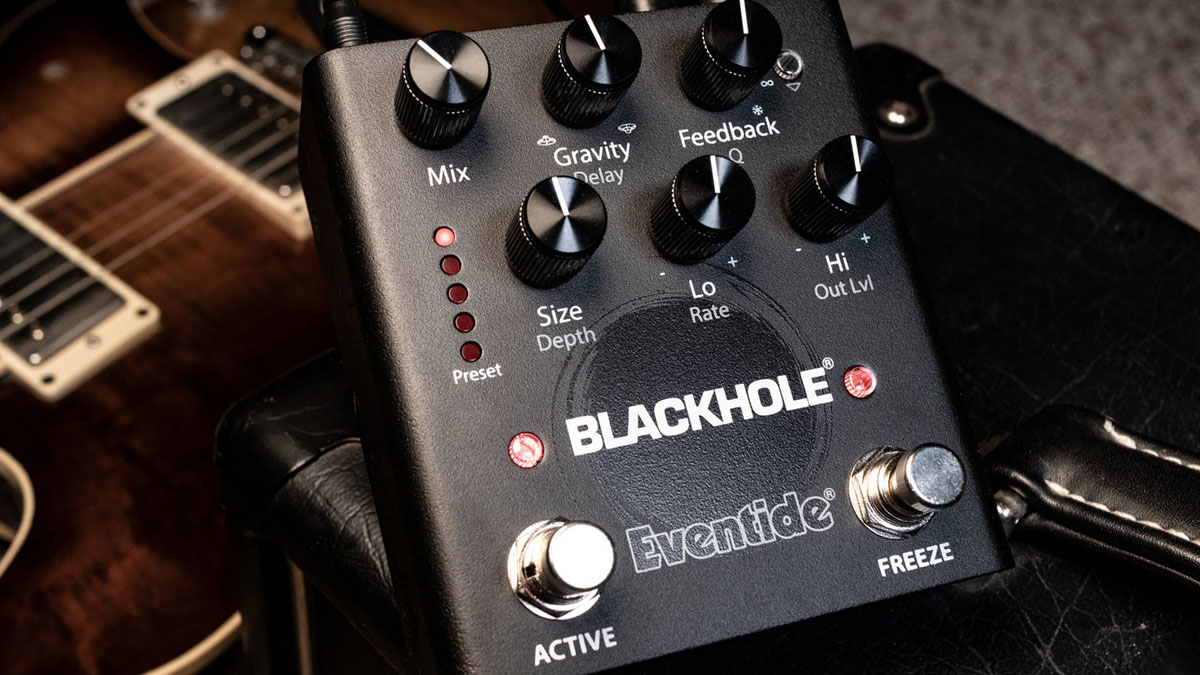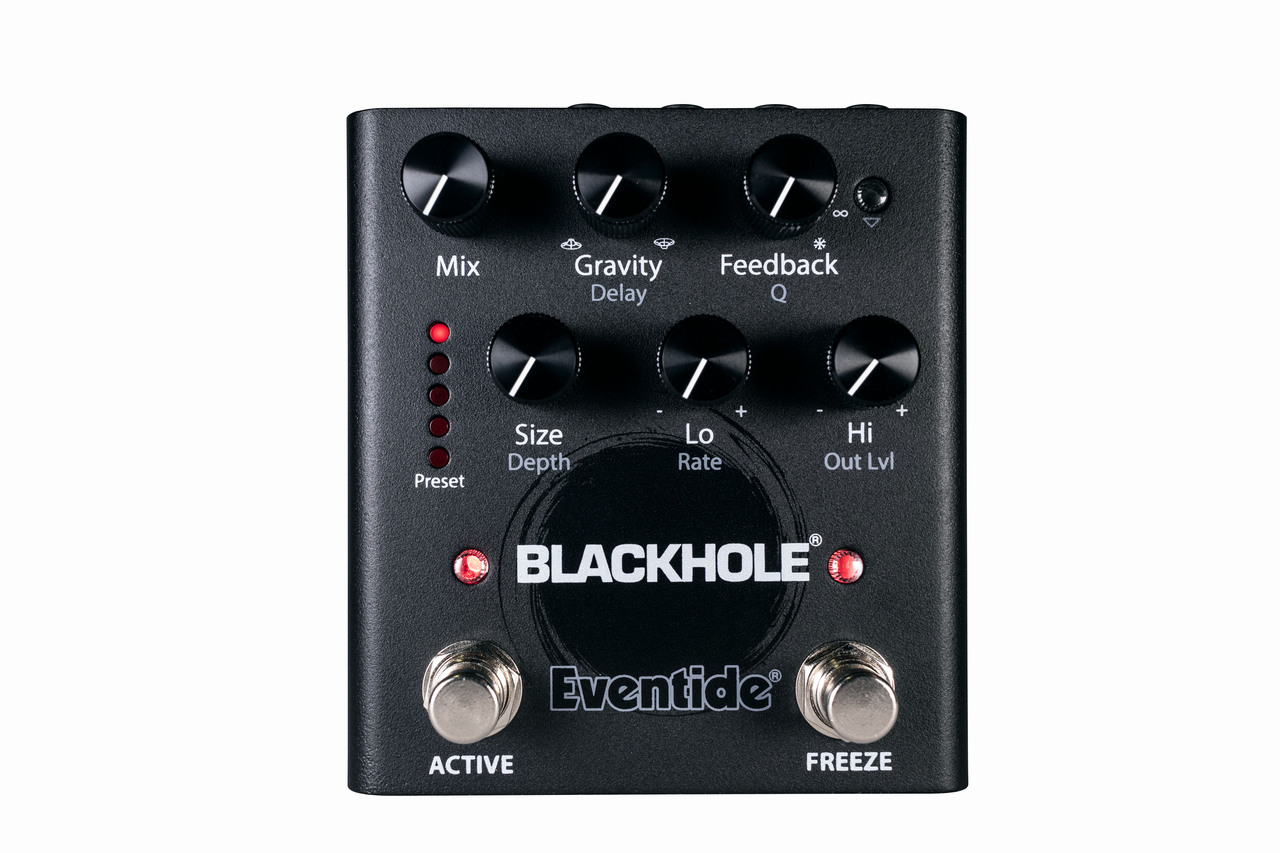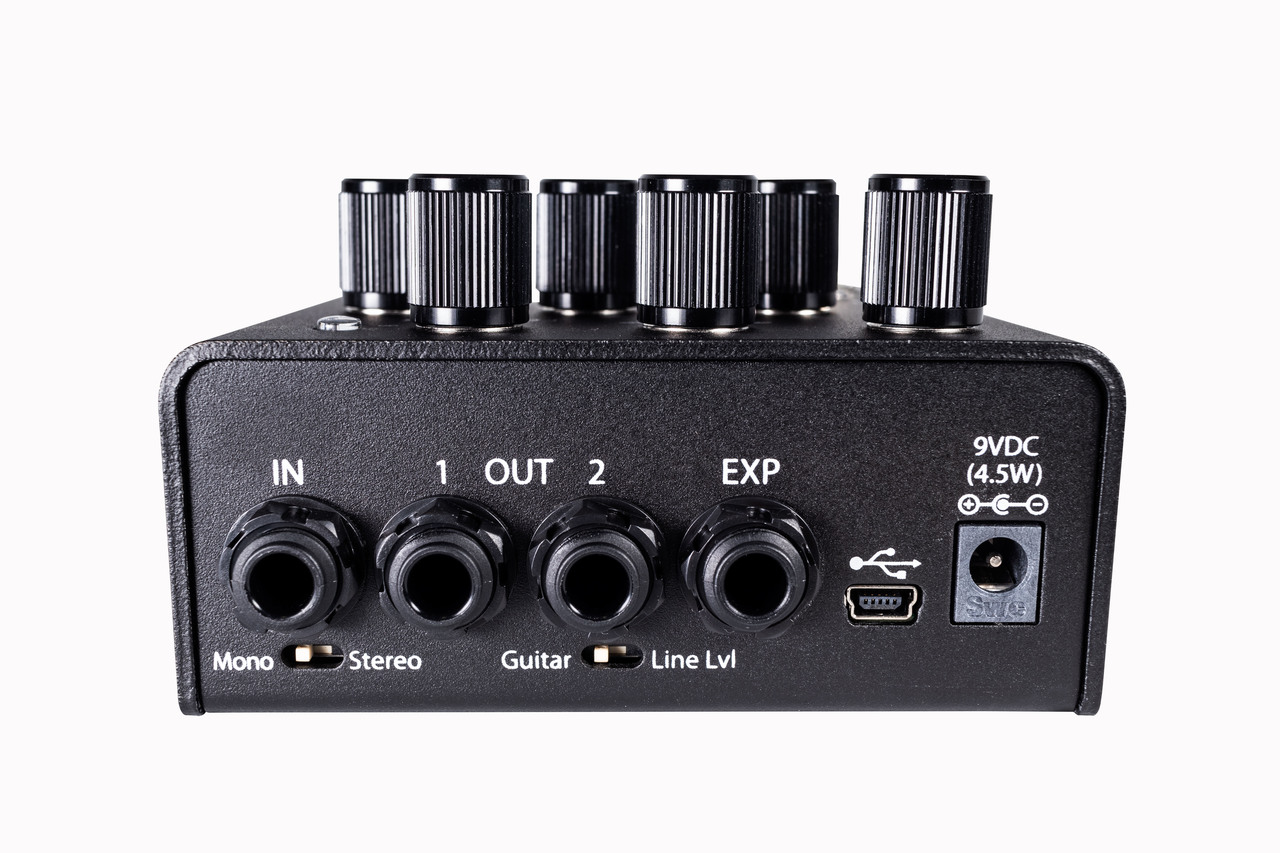Send your guitar tone through time and space with Eventide's Blackhole Reverb
The Blackhole reverb can take your sound from a "cartoonishly small room to a limitless universe"

Want all the hottest music and gear news, reviews, deals, features and more, direct to your inbox? Sign up here.
You are now subscribed
Your newsletter sign-up was successful
Today in big pedal news to drop out of the ether, Eventide has unveiled the Blackhole Reverb – a tricked-out reverb pedal that houses the Blackhole algorithm that made the DSP4000 Ultra-Harmonizer such a powerful piece of kit.
The Blackhole is tweakable to the Nth degree. You can load it up with up to 127 presets via MIDI, and make five readily available via the unit's latching dual-action active footswitch, with LEDs to let you know which one you've selected.
You can set the pre-delay to change the onset of the reverb and any number of the Blackhole's parameters can be controlled via an external expression pedal.
There are so many functions here. Eventide describes two types of reverb mode in which the Infinite Mode layers the effect on top of a suspended reverb while the Freeze Mode holds the effect so you can play over the reverb's tail.
Sure, you can use the Blackhole for adding a little room and depth to your tone, but it's clear that you can send it through the next dimension with just few turns of a knob.
It is setup to be used by a guitar, bass or synth, or run through an FX loop or DAW, with the Guitar/Line Level switch on the rear of the unit allowing you to match impedance for your needs.
There is a Catchup Mode that allows you to dial in a sound when toggling between presets or parameters, which sounds very much like a shortcut to take different parameters from different reverb sounds and plop them onto a new preset. Lo, Hi and Q knobs on the enclosure control the effect's resonance.
Want all the hottest music and gear news, reviews, deals, features and more, direct to your inbox? Sign up here.
The Gravity control looks especially interesting, allowing the player to choose between a normal or inverse decay on the reverb tail. The effect of which, says Eventide, can "create interesting swells or suck the dry signal back into the reverb tail."
As far as ambience and adding depth to guitar tone, the Blackhole sounds very much like it was made for experimenting with – a new kind of reverb. Well, it'll cost you $279 and endless hours drifting in deep space.
"Escape Earth and create haunting echoes, ethereal landscapes and otherworldly ambience," says Eventide. Escape Earth? In 2020? Sign us up.



Jonathan Horsley has been writing about guitars and guitar culture since 2005, playing them since 1990, and regularly contributes to MusicRadar, Total Guitar and Guitar World. He uses Jazz III nylon picks, 10s during the week, 9s at the weekend, and shamefully still struggles with rhythm figure one of Van Halen’s Panama.
